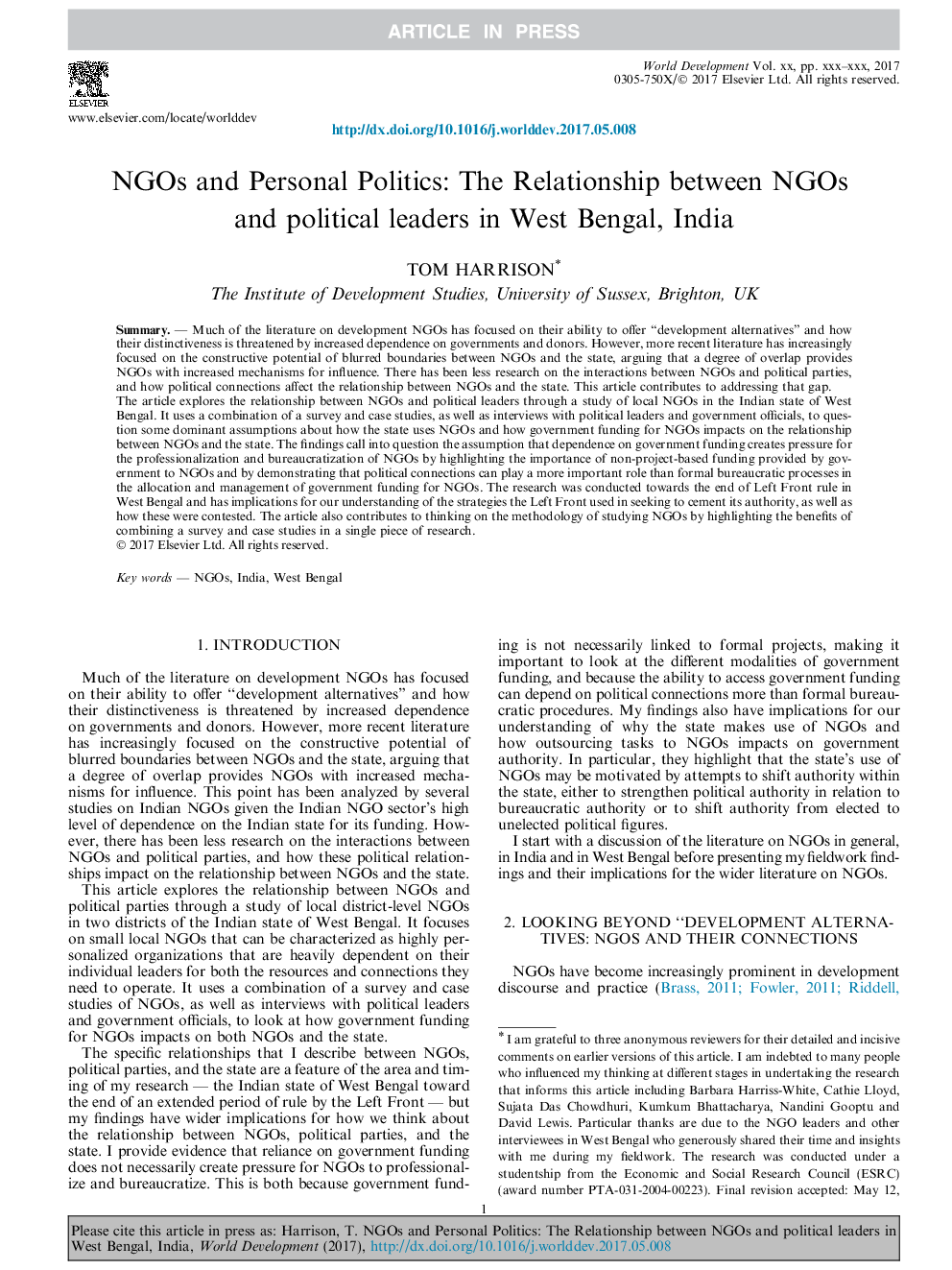ترجمه فارسی عنوان مقاله
سازمان های غیر دولتی و سیاست های شخصی: رابطه بین سازمان های غیر دولتی و رهبران سیاسی در غرب بنگال، هند
عنوان انگلیسی
NGOs and Personal Politics: The Relationship between NGOs and political leaders in West Bengal, India
| کد مقاله | سال انتشار | تعداد صفحات مقاله انگلیسی |
|---|---|---|
| 136480 | 2017 | 12 صفحه PDF |
منبع

Publisher : Elsevier - Science Direct (الزویر - ساینس دایرکت)
Journal : World Development, Volume 98, October 2017, Pages 485-496
ترجمه کلمات کلیدی
سازمان های غیر دولتی، هند، بنگال غربی،
کلمات کلیدی انگلیسی
NGOs; India; West Bengal;
ترجمه چکیده
این مقاله به بررسی رابطه بین سازمان های غیر دولتی و رهبران سیاسی با مطالعه سازمان های غیر دولتی محلی در ایالت بنگال غربی می پردازد. این مجموعه ترکیبی از بررسی و مطالعات موردی و همچنین مصاحبه با رهبران سیاسی و مقامات دولتی را در مورد برخی از فرضیه های غلط درباره نحوه استفاده از دولت از سازمان های غیر دولتی و نحوه تأمین مالی دولت برای سازمان های غیر دولتی بر رابطه بین سازمان های غیر دولتی و دولت مورد استفاده قرار می دهد. یافته ها با این فرضیه مطابقت می کنند که وابستگی به بودجه دولتی فشار را برای حرفه ای سازی و بوروکراسی کردن سازمان های غیر دولتی با تأکید بر اهمیت کمک های غیر اختصاصی توسط دولت به سازمان های غیر دولتی و نشان دادن اینکه ارتباطات سیاسی می تواند نقش مهمی را ایفا کند، فرآیندهای بوروکراتیک رسمی در تخصیص و مدیریت بودجه دولت برای سازمان های غیردولتی. این تحقیق به سوی پایان فرمان چپ سرب در بنگال غربی انجام شد و درک ما از استراتژی هایی است که جبهه چپ در تلاش برای تقویت اقتدار آن و نیز چگونگی اعتراض به آن است. مقاله همچنین به تفکر در روش شناسی سازمان های غیر دولتی با برجسته کردن مزایای ترکیب یک بررسی و مطالعات موردی در یک قطعه تحقیق کمک می کند.

